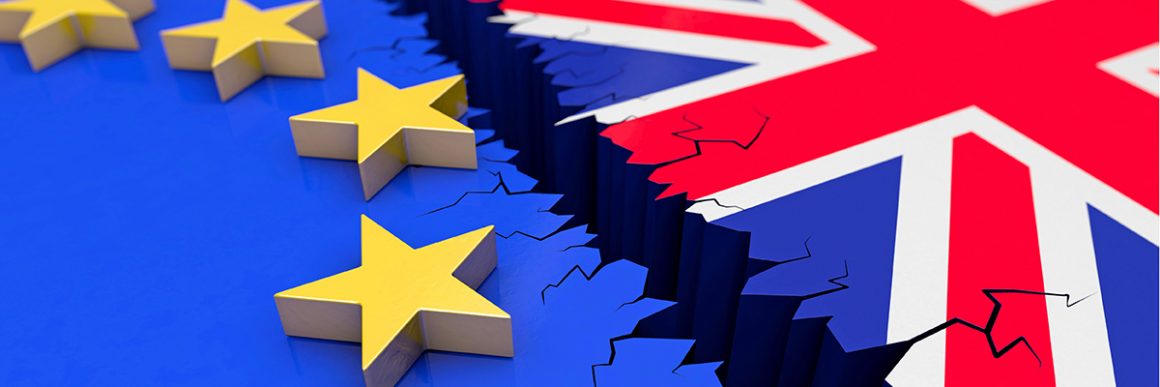On the 14
th of September, the newly reconstituted House of Commons Treasury Committee held their first hearing focused on Customs, bringing in three senior representatives from HMRC to address questions on the UK’s customs and trade strategy post-Brexit.
Jon Thompson, HMRC Chief Executive, told the committee that
HMRC had been very involved in the production of the Government’s Future Partnership Customs paper. This position paper outlined the UK’s intended customs strategy, calling for a system which ‘facilitates the freest and most frictionless trade possible in goods between the EU and UK’ while also allowing for new trade relationships to be made.
The UK intends to leave the existing EU customs union, but hopes to maintain a ‘close association’ for a limited time to allow both sides to put new border checks and infrastructure in place. This is to avoid a potential cliff edge for both businesses and individuals on both side.
At the end of the ‘transitional period’, the Government have proposed two new options for future customs arrangements between the UK and EU.
The
first would be a ‘highly streamlined customs arrangement’ which would simplify requirements to leave as few additional requirements on EU trade as possible. This option would continue some of the existing arrangements between the UK and EU, put in place new negotiated unilateral facilitations and implement technology based solutions to make it easier to comply with customs procedures.
The
second option would have the UK and EU align their approach to the customs border to eliminate the need for a UK-EU customs border. This may involve the UK mirroring the EU’s requirements for imports from the rest of the world, where their final destination is the EU. As this is an unprecedented model, it would undoubtedly be the more challenging option.
During the committee hearing, HMRC officials were careful not to express a clear preference for one option over another. Although Jim Harra, Director General of HMRC Customer Strategy, did acknowledge that
the highly streamlined model is more recognisable to Customs Officials.
When quizzed about a “no deal” scenario if neither of the proposals are deemed sufficient by the EU,
HMRC assured the committed that if the UK left the EU with no deal there would be a functioning ‘day one’ structure in place. Though Harra he did stress that this is not something he would be happy with long term.
Harra was clear that
HMRC would like to see a decision on the transitional period sooner rather than later, as otherwise people will have to plan for a contingency even though it is not the Government’s plan to invoke such a contingency. When asked at what point a decision would be needed, Harra said towards the end of the financial year HMRC would need to start reaching out to traders, so it would need to be within a few months.
HMRC are also seeking out insight for the best possible future for the UK/EU border. Thompson told the committee that
HMRC were looking at Customs arrangements between the US and Canada, Germany and Switzerland, Singapore and Australia, and many others.
Thompson also suggested that the UK could follow the lead of other countries and join together both border control and tax at the border in one single department. This ‘single window’ for importers and exporters would replace the 26 agencies in a method currently adopted by Singapore and Australia. Thompson notes that while this idea is conceptually possible, it would cost between £500m-£800m and would take 5-7 years to implement. Although, he does believe it would result in both smoother trade for importers and exporters and a boost for GDP.
Coping with the ramifications of Brexit will not be a short-term issue. As Harra points out ‘there are probably about 130,000 new businesses that will be dealing with customs for the first time and there is a big challenge in reaching them, supporting them and getting them to be able to comply with their obligations on a transitional basis as well as on an ongoing basis.’
With a
Customs and Trade Bill both expected in the coming months, it is hoped that the UK Government will further clarify their position and the potential implications to offer greater certainty to businesses across the UK and Europe.
Senior representatives from HMRC will host exclusive sessions to answer questions and concerns directly.
Leading companies, including IBM, Next, Sainsbury’s, GlaxoSmithKline, and organisations, such as the Institute of Export and the International Meat Trade Association, will host practical sessions to give you insight into how they are managing upcoming challenges.
Tags: border control, Brexit, customs, Customs bill, customs compliance, EU, HMRC, trade
